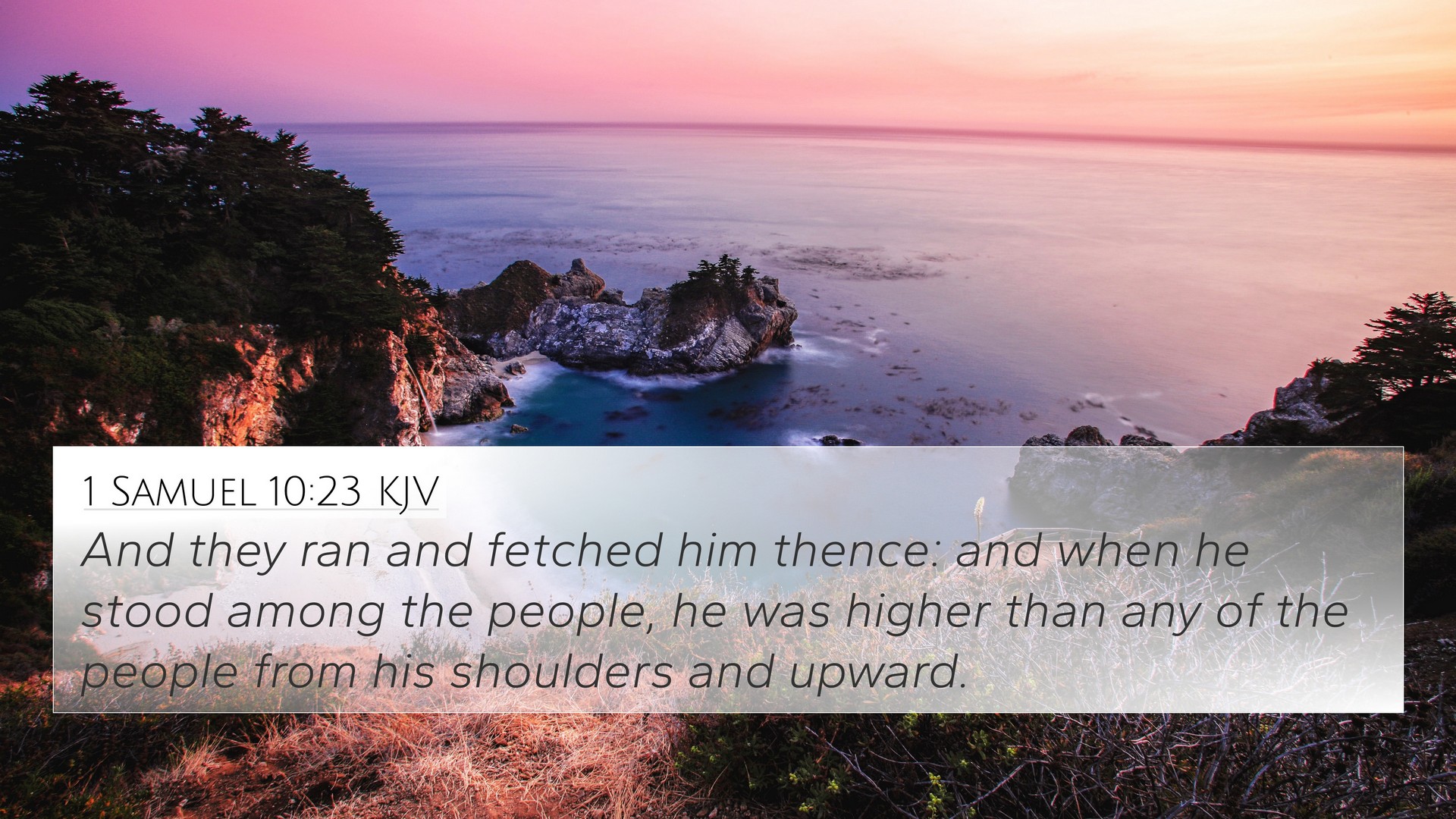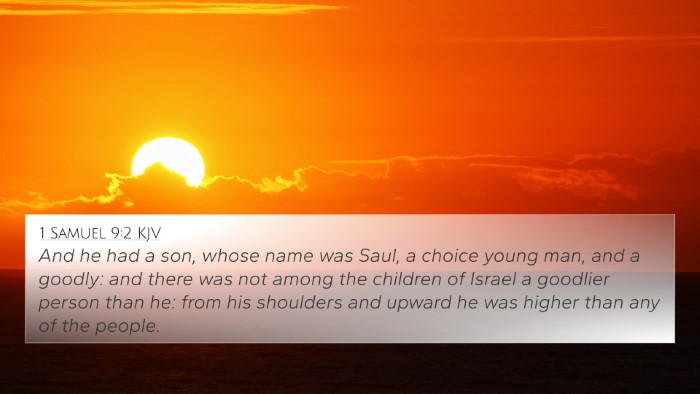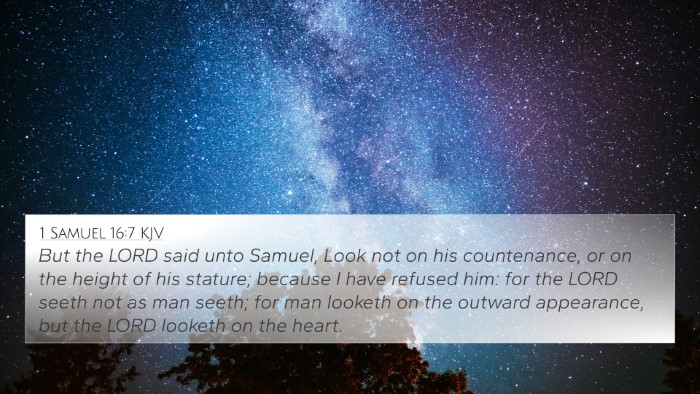Understanding 1 Samuel 10:23
1 Samuel 10:23 reads: "And they ran and fetched him thence: and when he stood among the people, he was higher than any of the people from his shoulders and upward."
Summary of the Verse
This verse captures a significant moment during Saul's anointing as king of Israel. The people sought him out amid a gathering, indicating his stature and presence made him a noticeable choice for leadership. His physical height, significantly taller than anyone else, symbolizes not just a natural qualification for kingship but also how the external characteristics often influence people's perception of leadership.
Commentary Insights
Drawing insights from public domain commentaries, we can deepen our understanding of this pivotal verse:
-
Matthew Henry:
Henry points out that Saul's height symbolizes the human tendency to judge outward appearances in selecting leaders. While height seems a positive trait, true leadership requires more than physical stature; it needs wisdom, character, and reliance on God.
-
Albert Barnes:
Barnes emphasizes the importance of God's choice in leadership. While the people sought Saul, it is crucial to remember that God directed this choice, as previously established. Saul's physical attributes were part of God’s sovereign selection process, but his eventual failure lay in failing to meet spiritual qualifications.
-
Adam Clarke:
Clarke elaborates on the idea that God often uses the unlikely or outwardly pleasing to accomplish His plans. Saul's selection and elevation might serve a larger narrative, indicating the nation's need for a king and how this affecting their relationship with God, ultimately leading to lessons learned from his reign.
Cross-References for Deeper Study
This verse relates to several other biblical texts that provide deeper insights and connections:
- 1 Samuel 9:2: This passage highlights Saul's qualities, noting that he was "a choice young man, and a goodly: and there was not among the children of Israel a goodlier person than he."
- 1 Samuel 16:7: "For the LORD seeth not as man seeth; for man looketh on the outward appearance, but the LORD looketh on the heart." This verse contrasts God's choice based on internal character versus human preference for outward appearance.
- Deuteronomy 17:15: "Thou shalt in any wise set him king over thee whom the LORD thy God shall choose." This reinforces the theme of divine selection in leadership.
- 1 Chronicles 10:1-14: Here we find a retrospective on Saul’s reign and the reasons for his downfall, linking it back to the characteristics that defined his rise.
- Philippians 2:3-4: This New Testament passage encourages humility and selflessness in leadership, contrasting with Saul's eventual pride and downfall.
- Romans 13:1: "Let every soul be subject unto the higher powers. For there is no power but of God: the powers that be are ordained of God." This speaks to the recognition that all authority is appointed by God.
- John 7:24: "Judge not according to the appearance, but judge righteous judgment." This reinforces the notion that godly judgment relies on deeper insights than just outward appearances.
Thematic Connections
The themes found in 1 Samuel 10:23 connect with various scriptural reflections on leadership, appearance, and divine sovereignty:
- The Nature of Leadership: Exploring how leaders are chosen and the attributes valued by God versus humanity.
- God's Sovereignty: Observing how God directs the paths of nations and individuals, often in ways that surprise humanity.
- Consequences of Human Choice: Looking at the outcomes borne from selecting leaders based on human desires rather than divine will.
- Physical vs. Spiritual Qualities: Analyzing how physical attributes may attract followers but spiritual integrity determines lasting leadership.
Conclusion
1 Samuel 10:23 encapsulates a turning point in Israel’s history, where the selection of Saul as king was influenced by physical attributes while demonstrating the deeper dangers of human judgment divorced from divine guidance. This verse encourages readers to engage in cross-referencing biblical texts to uncover thematic connections that deliver nuanced understandings of leadership, divine sovereignty, and the profound lessons learned from Saul’s life and reign.





